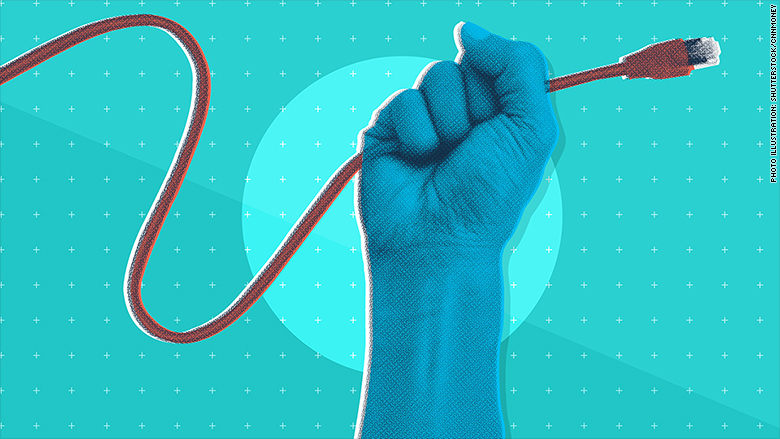End of ‘Net Neutrality’
The sky has not fallen. Armageddon has passed evidently passed us by. We have not seen the Great Tribulation that was expected to fall on us on June 11, with the official end of the FCC’s Title II ‘net neutrality‘ internet rules.

Without the regulations, we were told, the web wouldn’t work properly. Disaster would follow: fire and brimstone, floods, earthquakes, mass extinction, dogs and cats living together- real Wrath of God stuff. At the very least, we’d see our content requests blocked or slowed, with frustratingly long buffering of music and video. Of our afflictions there would be no end.
Why hasn’t the sky fallen?
So far, none of the dire predictions has been realized. We haven’t seen ISPs rushing to raise rates, block or slow content, or otherwise restrict internet access.
In fact, most ISPs have announced plans to develop advanced 5G systems. They are investing massive amounts in creation of new networks and expansion of existing ones. These investments had been retarded under the Title II web rules, because ISPs did not want to risk capital in an uncertain regulatory climate. The FCC had too much discretion, and ISPs could not be sure how it would rule from one case to another. With the end of the Title II framework, ISPs are more certain about what the law allows.
What happens now?
Does this mean the industry is finally at peace? Will the advocates of the restricitve web rules admit that they could have been wrong? Don’t bet on it. Though the legal battle over Title II is settled- for now- the political quarrel is nowhere near its end.
The industry is sharply divided over the issue. Google and Facebook have argued strenuously for retaining the Title II rules for ISPs, while Verizon and AT&T called for their abolition.
Several states, and some municipal governments, have said that they will enact ‘net neutrality’ rules on their own. This effort has encountered stiff resistance. Roslyn Slayton is a scholar for the American Enterprise Institute who served on Mr. Trump’s transition team. Slayton said to CNN, “It’s patently illegal for the states to make their own internet policy.”
The Trump Administration is likely to join some of the larger ISPs in lawsuits against state attempts to regulate the web.
UPDATE: We’ve received word that an effort to enact a state ‘net neutrality’ law has stalled in the California legislature.
What does it all mean anyway?
‘Net neutrality’ is the principle that an internet service provider (ISP) should treat all data equally. An ISP should not block, slow, or charge extra for any data based on the user, application, website, platform, connected equipment, or means of communication.
The Title II web rules are extensions of the 1934 Telecommunications Act. Under its terms, an ISP is to be regulated like as a ‘common carrier’, like a land line telephone exchange.
(For the most reliable internet connection, talk to Satellite Country. We can help.)

